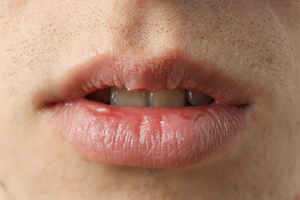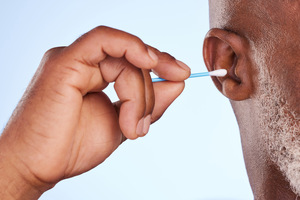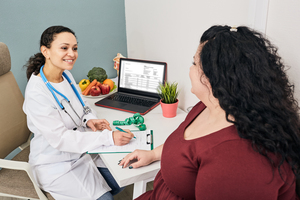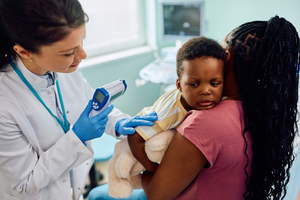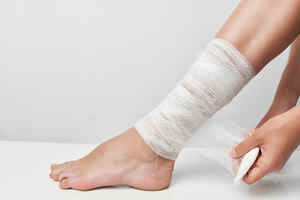Book an STD Test in Jacksonville, FL
Own a clinic? Add your location.
Help patients book appointments with you on Solv. It's free!
14 instant-book locations

Avecina Medical, Normandy
Avecina Medical
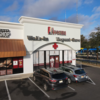
Avecina Medical, Southside Blvd
Avecina Medical

Avecina Medical, Mandarin
Avecina Medical
Today
View more
Avecina Medical, Hodges
Avecina Medical
Today
View more
Avecina Medical, Orange Park
Avecina Medical
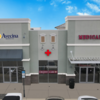
Avecina Medical, Oakleaf Town Center
Avecina Medical
Today
View more
Avecina Medical, Julington Creek
Avecina Medical

Avecina Medical, Durbin Park
Avecina Medical
Today
View more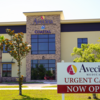
Avecina Medical, Middleburg
Avecina Medical

Avecina Medical, St. Johns
Avecina Medical

Avecina Medical, Yulee/Amelia Island
Avecina Medical
Today
View more
Labcorp, Jacksonville
Labcorp
Self-pay pricing
Clear self-pay prices
No more surprise bills. Solv is committed to making getting healthcare as easy as buying groceries at the store, including knowing the price of care upfront.

Self-pay pricing
Clear self-pay prices
No more surprise bills. Solv is committed to making getting healthcare as easy as buying groceries at the store, including knowing the price of care upfront.

Labcorp, Jacksonville
Labcorp
Self-pay pricing
Clear self-pay prices
No more surprise bills. Solv is committed to making getting healthcare as easy as buying groceries at the store, including knowing the price of care upfront.

Quest Diagnostics
Quest Diagnostics
Self-pay pricing
Clear self-pay prices
No more surprise bills. Solv is committed to making getting healthcare as easy as buying groceries at the store, including knowing the price of care upfront.

Quest Diagnostics
Quest Diagnostics
Self-pay pricing
Clear self-pay prices
No more surprise bills. Solv is committed to making getting healthcare as easy as buying groceries at the store, including knowing the price of care upfront.

Self-pay pricing
Clear self-pay prices
No more surprise bills. Solv is committed to making getting healthcare as easy as buying groceries at the store, including knowing the price of care upfront.

Labcorp, Jacksonville
Labcorp
Self-pay pricing
Clear self-pay prices
No more surprise bills. Solv is committed to making getting healthcare as easy as buying groceries at the store, including knowing the price of care upfront.

Quest Diagnostics
Quest Diagnostics
Self-pay pricing
Clear self-pay prices
No more surprise bills. Solv is committed to making getting healthcare as easy as buying groceries at the store, including knowing the price of care upfront.

Self-pay pricing
Clear self-pay prices
No more surprise bills. Solv is committed to making getting healthcare as easy as buying groceries at the store, including knowing the price of care upfront.
Own a clinic? Add your location.
Help patients book appointments with you on Solv. It's free!
Overview of STD Testing in Jacksonville
Who should get tested for STDs?
Anyone who is sexually active should consider getting tested for sexually transmitted diseases (STDs). This is particularly important for individuals who have multiple sexual partners, engage in unprotected sex, or have a partner who has tested positive for an STD. According to the CDC, certain demographics, such as young adults and men who have sex with men, are at a higher risk for STDs and should get tested regularly.
Importance of getting tested
Getting tested for STDs is a crucial step in maintaining your overall health. Many STDs do not show symptoms, meaning you could be infected and unknowingly transmitting the disease to others. Early detection through testing allows for prompt treatment, reducing the risk of severe health complications. Furthermore, understanding your STD status can help you make informed decisions about your sexual health and protect your partners.
STD testing options in Jacksonville, FL:
Urgent care and walk-in clinics
Urgent care and walk-in clinics offer convenient, same-day STD testing. One such location is Avecina Medical, located at 5915 Normandy Blvd, Jacksonville, FL 32205. With a 4.55 rating and noted for its short wait times, this clinic is a reliable option for STD testing. You can book appointments at Avecina Medical and similar clinics through Solv’s website and mobile app.
Primary care providers
Your primary care provider is another resource for STD testing. They can provide personalized advice based on your sexual history and risk factors. However, keep in mind that appointments may not be available on the same day.
Free STD testing and community health centers
Community health centers often provide free or low-cost STD testing. SWL Medical Services is a local option in Jacksonville, located at 3117 Spring Glen Rd, Jacksonville, FL 32207.
At-home testing
At-home testing kits offer privacy and convenience. They can be ordered online, used at home, and sent back to a lab for analysis. Results are typically available within a few days.
Prevalence of STDs in Jacksonville
Jacksonville, located in Duval County, has seen a rise in STD cases over the years, mirroring a national trend. The most common STDs in the area include chlamydia, gonorrhea, and syphilis. Compared to nearby counties like Bamberg, Colleton, and Charleston, Duval County has a higher rate of STDs, according to the CDC.
Risk factors related to STDs in Jacksonville
Several factors contribute to the prevalence of STDs in Jacksonville. These include a high rate of unprotected sex, lack of regular testing, and limited sex education. Additionally, certain populations, such as young adults and men who have sex with men, are at a higher risk. It's important to understand these risk factors and take preventative measures, such as using protection and getting regularly tested for STDs.
Solv has strict sourcing guidelines and relies on peer-reviewed studies, academic research institutions, and medical associations. We avoid using tertiary references.
STD Testing FAQs
Where should I get an STD test in Jacksonville?
In a doctor's office, a health clinic, or an urgent care center, you can get an STD test. If you're experiencing symptoms, it's best to visit a doctor's office, where they can also treat you or issue you a prescription. While some Jacksonville clinics and urgent care centers allow walk-in appointments, it's advisable to make an appointment ahead of time to prevent excessive waits.
How long does it take to get STD test results?
Various testing are required for various STDs. Depending on the type of STD test you took, you may receive your results in two to ten days. Some outcomes may be immediately available. Your doctor may be able to diagnose an STD through a physical examination. In some cases, your doctor's office may only contact you if your test results are positive.
How much does an STD test cost in Jacksonville?
The cost of STD testing is governed by several factors, including where you are tested, the type of test you need, and if you have health insurance. Some Jacksonville clinics may offer free testing or testing on a sliding scale based on your income. Because of the cost, don't put off obtaining an STD test. With your doctor's office, discuss the cost and payment choices. Delaying STD treatment may have catastrophic implications.
Does insurance cover STD testing in Jacksonville?
The cost of STD testing is governed by a number of factors, including the location of the test, the type of test required, and whether or not you have health insurance. Some clinics may provide free or sliding-scale testing, depending on your income. Don't let the expense of an STD test deter you from getting one. With your doctor's office, discuss the price and payment choices. Delaying STD treatment could have catastrophic ramifications.
How do they test for STDs in Jacksonville?
There are around 20 different forms of STDs, each with its own set of diagnostic tests. No single test exists that can detect all types of STDs. Your doctor can help you figure out which tests you'll need. In STD testing, a blood sample or a urine sample may be used. Your doctor may also take a swab from the inside of your cheek, your vaginal area, or another potentially infected place.
What STDs can be detected by a blood test?
Blood tests are used to diagnose hepatitis B, hepatitis C, herpes, HIV, and syphilis. In a laboratory, a technician examines a blood sample for antibodies that the body has produced in reaction to disease. The virus's DNA can also be detected by several blood tests. Remember that if you've recently been exposed to an STD and your body hasn't yet produced antibodies, you could test negative even if you have the disease.
Can I get a same-day appointment for STD testing in Jacksonville?
Many Jacksonville, FL urgent care providers offer same-day and next-day appointments, which you may book through Solv. To make healthcare more accessible to everyone, we collaborate with thousands of top-rated local providers. Our physician partners understand that waiting days, if not weeks, for an appointment isn't always the best option, and they share our commitment to simple, accessible health care.
How can I book an STD test on Solv?
To find a healthcare practitioner in your area, simply enter your location and search for "STD test" on our website. A list of providers and available appointments can be found on the following page. Choose the most convenient time and location for you. Make it clear that you've come for STD testing.
How long does an STD test take in Jacksonville?
If you have a specific STD, inform your doctor so that the necessary test can be scheduled. Otherwise, they'll help you figure out which tests you'll need. The nurse or doctor simply needs a few minutes to get a blood sample, a urine sample, or a swab from the probable infection site.
Can I test myself for STDs at home?
Although there are several STD home tests available, not all of them are accurate. The accuracy of any STD test is determined by the quality of the sample taken. For home STD kits, a blood sample, a urine sample, or both are frequently required. Because doctors and nurses have more experience collecting samples, traditional in-office STD testing is the most accurate.
Related Searches
Urgent Care in Jacksonville, FL
DOT Exam in Jacksonville, FL
Allergy Testing in Jacksonville, FL
Basic Metabolic Panel in Jacksonville, FL
Mono Test in Jacksonville, FL
Lab Tests in Jacksonville, FL
Vitamin D Test in Jacksonville, FL
Sports Physicals in Jacksonville, FL
Pregnancy Test in Jacksonville, FL
Strep Test in Jacksonville, FL
Ear Wax Removal in Jacksonville, FL
Urinalysis in Jacksonville, FL
Pulmonary Function Test in Jacksonville, FL
Thyroid Test in Jacksonville, FL
Hepatitis test in Jacksonville, FL
Dermatologists in Jacksonville, FL
COVID-19 Pill in Jacksonville, FL
COVID-19 Testing in Jacksonville, FL
Drug Test in Jacksonville, FL
Blood Test in Jacksonville, FL
Diagnostic Test in Jacksonville, FL
CMP Test in Jacksonville, FL
A1C Test in Jacksonville, FL
Diabetes Test in Jacksonville, FL
TB Test in Jacksonville, FL
Flu Test in Jacksonville, FL
Retail Clinic in Jacksonville, FL
Pediatric Urgent Care in Jacksonville, FL
Cholesterol Test in Jacksonville, FL
DNA Test in Jacksonville, FL
RSV Test in Jacksonville, FL
H Pylori Test in Jacksonville, FL
Glucose Test in Jacksonville, FL
Aetna Urgent Care
Blue Cross Blue Shield Urgent Care
Cigna Urgent Care
COVID-19
Flu
United Health Urgent Care
» All services in Jacksonville, FLFind STD testing
Nearby cities
Everyday Healthcare, Simplified
Expert advice to help you live your best life
